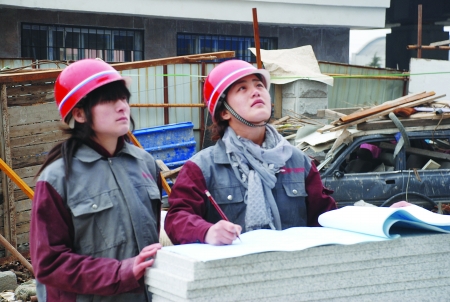Migrant workers begin tuition-free learning odyssey
- By Xu Lin
 0 Comment(s)
0 Comment(s) Print
Print E-mail China.org.cn, March 27, 2012
E-mail China.org.cn, March 27, 2012
|
|
|
The first batch of 140 migrant workers are set to receive two and a half years of free education in Beijing. |
The Beijing Federation of Trade Unions College received its first batch of migrant worker students on Sunday. The 140 migrant workers are set to receive two and a half years of free education, as well as diplomas upon graduation, under the Capital Beijing Migrant Worker-- College Students Support Program.
The program aims to provide funding to migrant workers for work-related higher education. Of the 200 migrant workers who applied for the program, 140 were enrolled by the college after sitting the national adult college entrance examination. The students’ tuition fees, totaling 6,000 yuan per person, will be covered by the Beijing Federation of Trade Unions. An official from the federation added that, in addition, each student will receive a free e-learning card which gives access to 50,000 online books.
The official stated that almost all classes will be held every other Saturday, ensuring that migrant workers also have plenty of time to work and relax. Despite the migrant workers’ status as part-time students, they will be expected to adhere to strict administrative regulations. For every course they take, they should attend at least two-thirds of all classes. Any student failing to do so will be ineligible for the course’s final examination. In addition, any student who is absent from school more than three times without permission will have their tuition fees exemption rescinded.
According to the official, at present, construction engineering management is the only major open to migrant workers, based on a survey of migrant workers on roughly 50 construction sites in Beijing. The survey ascertained their education background and any vocational education they had received. The federation plans to launch a second survey soon, and more majors are expected to be included this year.
There are currently as many as 159 million migrant workers among China’s 321 million employees. However, most migrant workers are lacking in education, especially higher education, having had an average school attendance of only 10.43 years.






